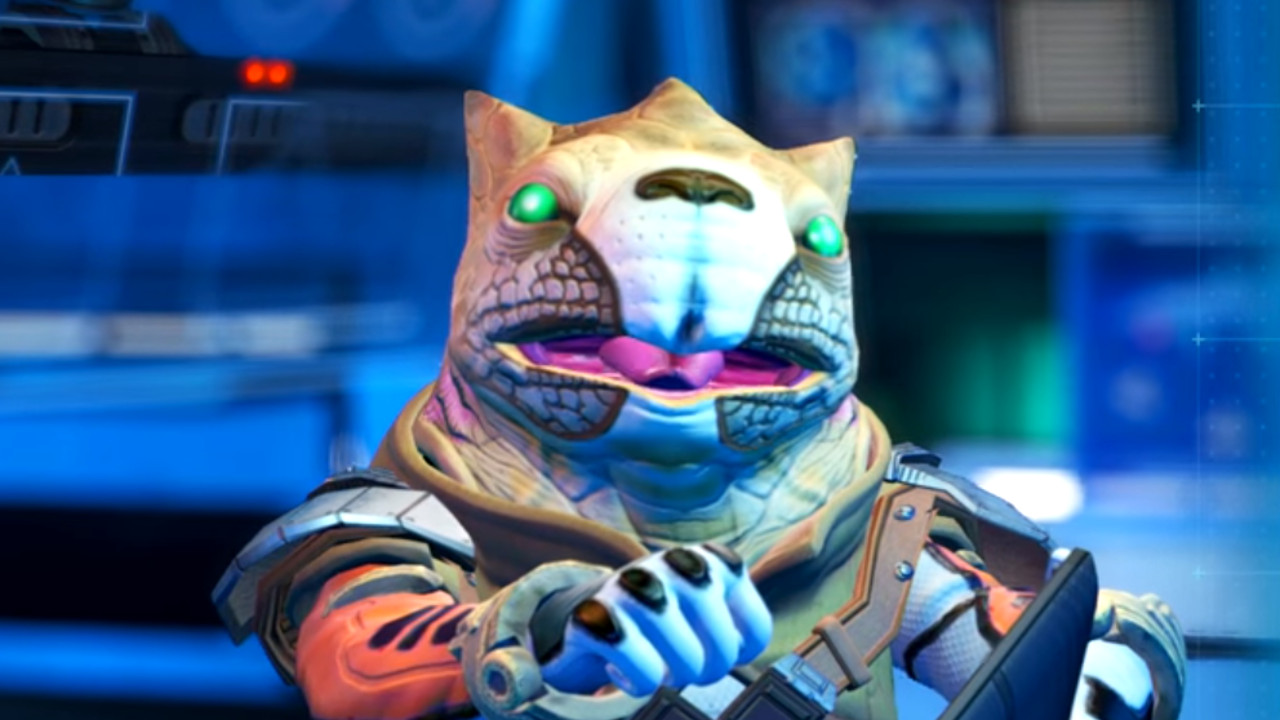“We always knew we were making a polarising game”: Sean Murray on the shaky past, exciting present, and bright future of No Man’s Sky
After years of radio silence, Sean Murray is ready to talk about No Man’s Sky again
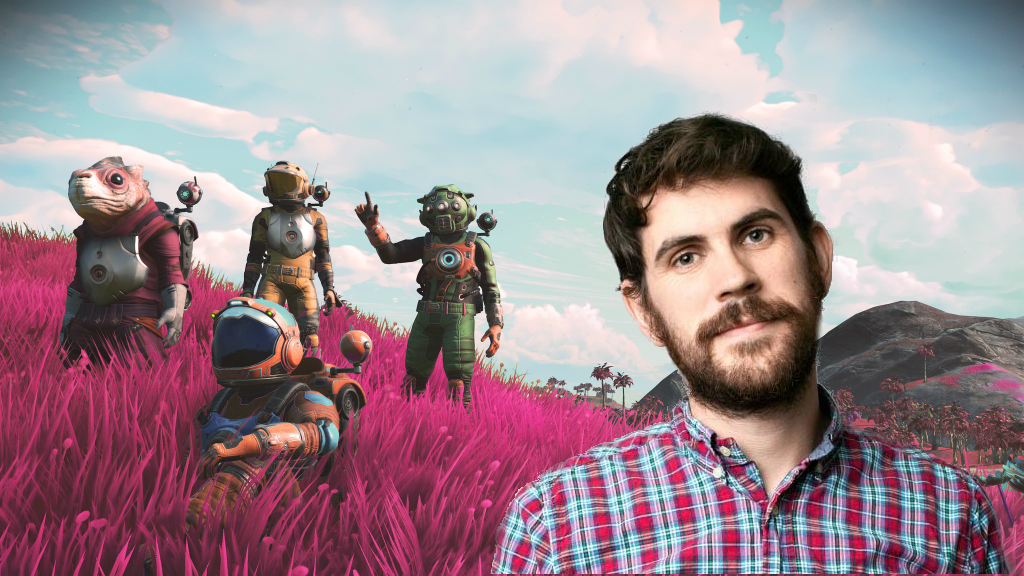
Where do you begin on the subject of No Man’s Sky? It’s a game stigmatised by a regretful episode in the industry’s history; a saga that got so messy, the UK Advertising Standards Authority had to get involved. Its catalytic rise to fame and subsequent fall from grace is frequently brought up in discussions around entitled player communities and unrestrained PR hype campaigns.
But it’s also an evolving product that’s trying desperately to escape its own past, refusing to be defined by its former mistakes in spite of those who have written it off based on first impressions alone. That’s not an easy path to tread, but developer Hello Games is quietly and confidently making a strong case for players, old and new, to give No Man’s Sky a second chance.
Just take a look at Next, the latest of several free updates to be rolled out for No Man’s Sky over the past two years since launch. It adds and changes so much to the experience - with true multiplayer, third person gameplay, unlimited base building, and more - that many onlookers, in sheer joyous disbelief, have likened it to a full blown sequel.
That’s because Creative Director Sean Murray, who unexpectedly found himself at the epicentre of a very public discussion in 2016, deliberately stepped away from the spotlight, along with the rest of Hello Games, to focus on building No Man’s Sky up from its shaky foundations. But with Next scheduled for July 24, alongside the game’s aptly synchronised Xbox One release, he’s ready to start talking about his longtime passion project once again, even willing to look back on what must have been a deeply uncomfortable time for the studio, albeit in a more restrained manner than before.
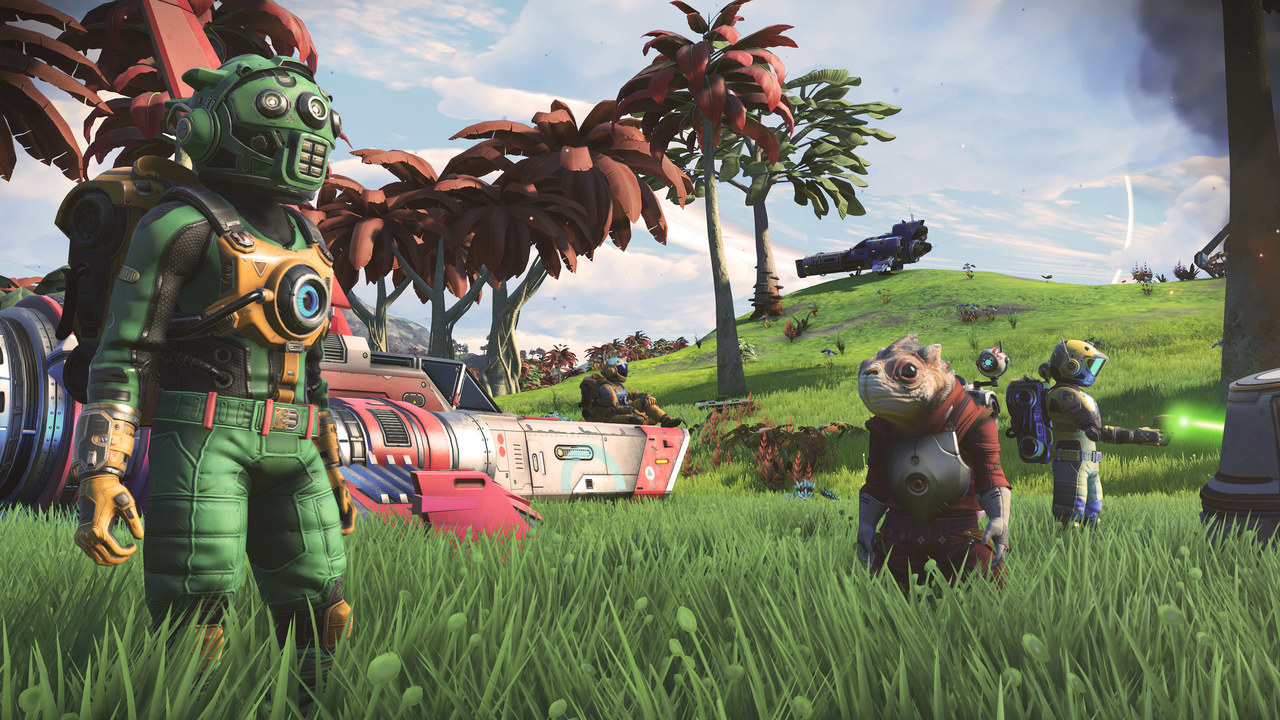
“I now understand why publishers talk in such a scripted way!” he jokes, when asked about the multitude of interviews he did in the lead up to No Man’s Sky’s launch, many of which he admits added more unhelpful oxygen to the already intense discourse surrounding the game. “We knew we were working on a polarising game, and while there’s no way to communicate that, I thought we were making it clear that No Man’s Sky was a weird lonely experience. But some people were looking at our trailers and thinking it was Star Wars, when really it’s more like 2001!”
Houston, we have a problem
Critics were divided on No Man’s Sky when it hit PC and PS4 on August 9, 2016, with some praising its compelling atmosphere and ambitious technology, and others questioning the very point of 18 quintillion planets when there was seemingly so little to actually do on each one. Things got more heated amongst the wider playerbase, as the game’s Steam page was met with barrages of angry reviews, and even Valve and Sony’s strained refund systems got caught up in the melodrama.
There were claims that Murray had lied about certain features in the game, to the point where the UK’s Advertising Standards Agency launched an inquiry to investigate whether No Man’s Sky’s promotional material had been misleading in its promises (it ruled against the matter only a few months later). One can only imagine what the inside of Hello Games looked like at the time.
Sign up to the GamesRadar+ Newsletter
Weekly digests, tales from the communities you love, and more
“There was some soul searching after launch…” admits Murray. “We had to figure out why we make games, and who we make them for. We enjoy doing things that are ambitious and innovative, but we don’t really enjoy talking to the press, and we’re not that good at it either. If I was to go back… that vast amount of time spent talking about the details of the game was never that valuable or necessary. We could have just shown the first trailer at the VGX Awards [in 2013] and disappeared until release.”
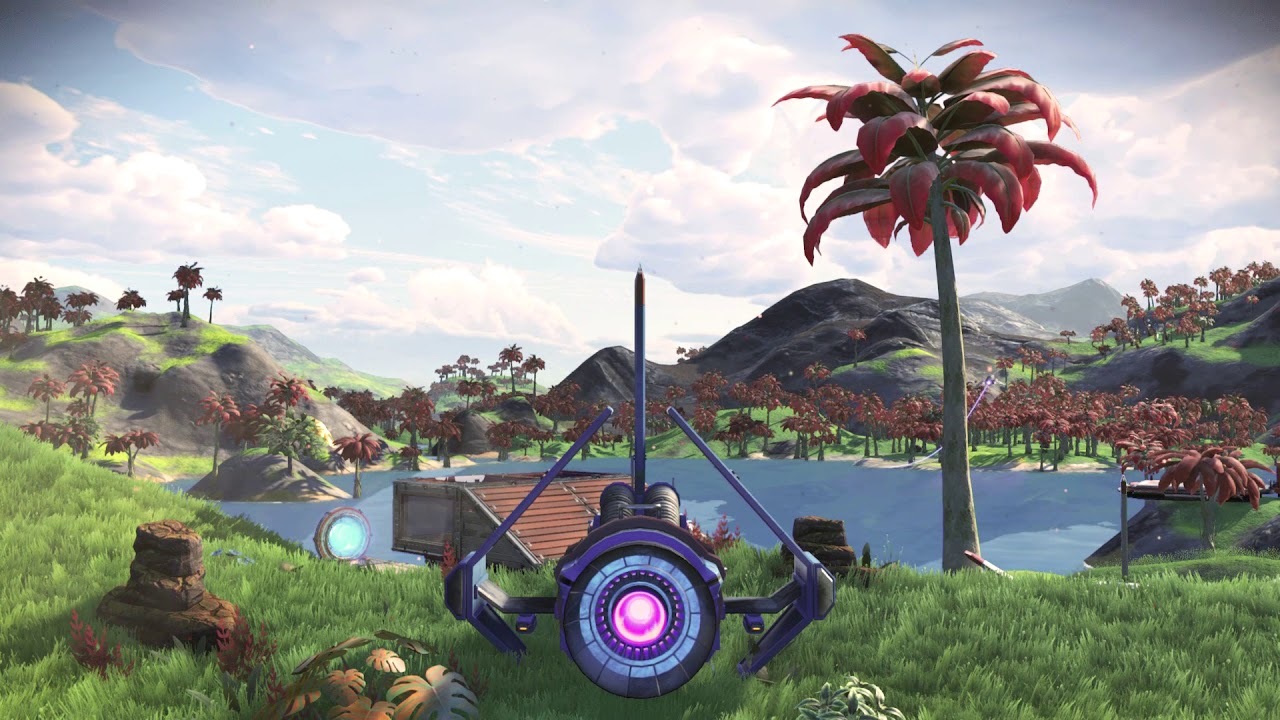
And that’s exactly what Hello Games has been doing ever since, sealing itself off from the public sphere until it’s been ready to show something new with each major update, and Murray explains the team is “the happiest it’s been” as a result: “It’s lovely to work in secret. There’s a freedom in being able to try new ideas for the game with no one ever knowing, without any of that outside pressure.”
“I now understand why publishers talk in such a scripted way!”
Sean Murray, Hello Games
No Man’s Sky itself has never looked healthier, too. The Foundation, Pathfinder, and Atlas Rises updates have refocused the game’s greatest strengths as a slow-burn, meditative work of science fiction. In that time, it’s developed a sizeable and passionate community that continue to play for hundreds of hours, forming in-game civilisations together, and working as a collective to complete each new update-teasing ARG, which have become so advanced that Hello Games has outsourced their creation to an entirely new development studio altogether.
Murray describes how this community and its feedback loop has fed into the further development of No Man’s Sky as an evolving game. I’m told that the Galactic Atlas, for example, is a website that’ll release in conjunction with Next, allowing players to chronicle and view their discoveries on a more formal online document, after years of having to go off their own mental mapping.
“I never imagined working on a game that people would be playing for thousands of hours.” he tells me. “I’ve worked on some big games before for EA, but they were never in that league. I’ve only had a handful of titles in my whole life that I've played for that long, and they’re super important to me in that they’ve defined certain periods in my life. So it's cool that we have become that for some people, and seeing them build their own stories with fanfiction and civilised space is unbelievable. You never think that the things you're working on are good enough to warrant that kind of thing, but I’ve met people who want to show me their Atlas Rises tattoos!”
The sky's the limit
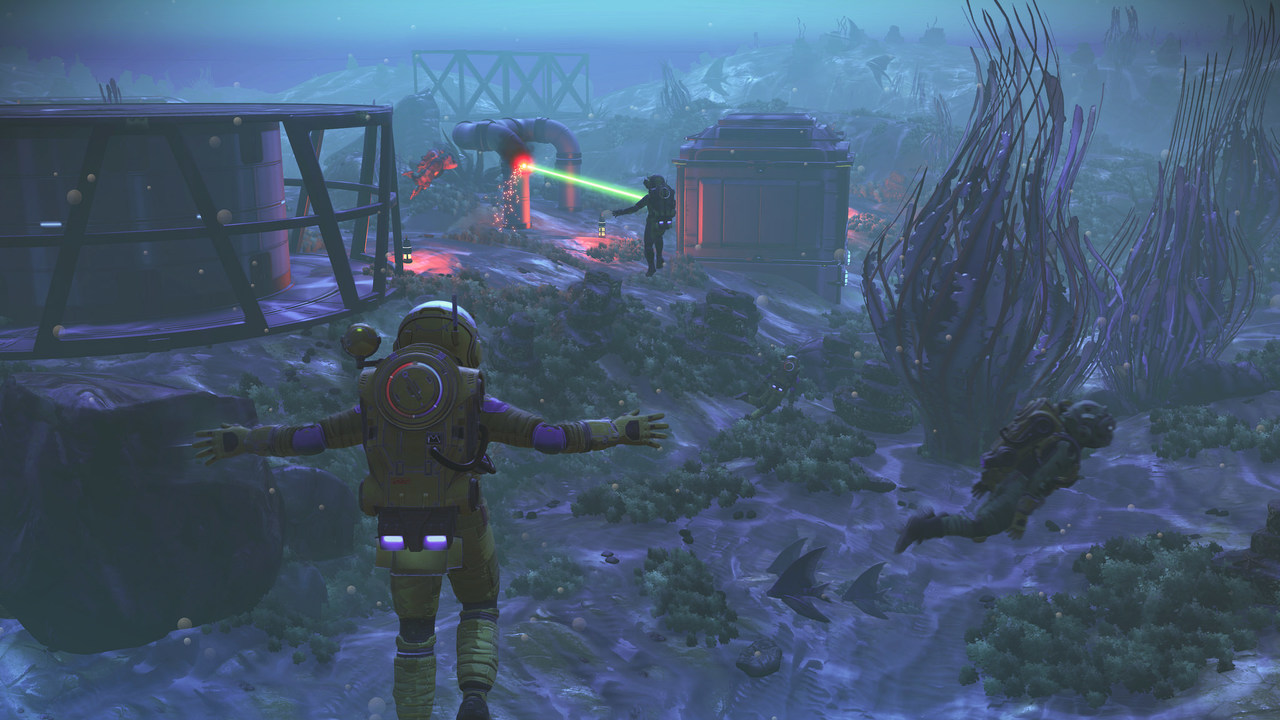
If these previous updates have added more rungs to the ladder of No Man’s Sky’s potential, Next intends to launch the game straight into the mesosphere. After playing a version of Next in third person, alongside three other players in co-op (though friendly fire is, interestingly, turned on), I’m stunned at just how different the game looks, feels, and plays.
The contemplative loneliness of the core experience blossoms into jovial camaraderie with friends, the crippling survival overtones are subtly backgrounded now that players can help each other out (complete with the ability to trade resources with one another), and the world feels less like an empty expanse and more like a playground, alive with human activity.
With the expanded base building, which lets you build on any surface to a near limitless degree, No Man’s Sky Next almost comes across like a better looking, sci-fi version of Minecraft, except here you could be picking flowers off a planet's surface while your buddy is engaging in dog fights thousands of miles above you. With Next, the depth and warmth that was so sorely missing for many on day one of No Man’s Sky is finally beginning to sprout into the fore.
So Next looks to be the kind of game-changing inflection point that only comes around so often with live, evolving games (such as Destiny and its Taken King expansion), but Murray promises that more is to come for No Man’s Sky both in the short and long term future. There’s talk of weekly missions, content drops, a marketplace (don’t worry, I’m told there won’t be any microtransactions or loot boxes), community events, and more.
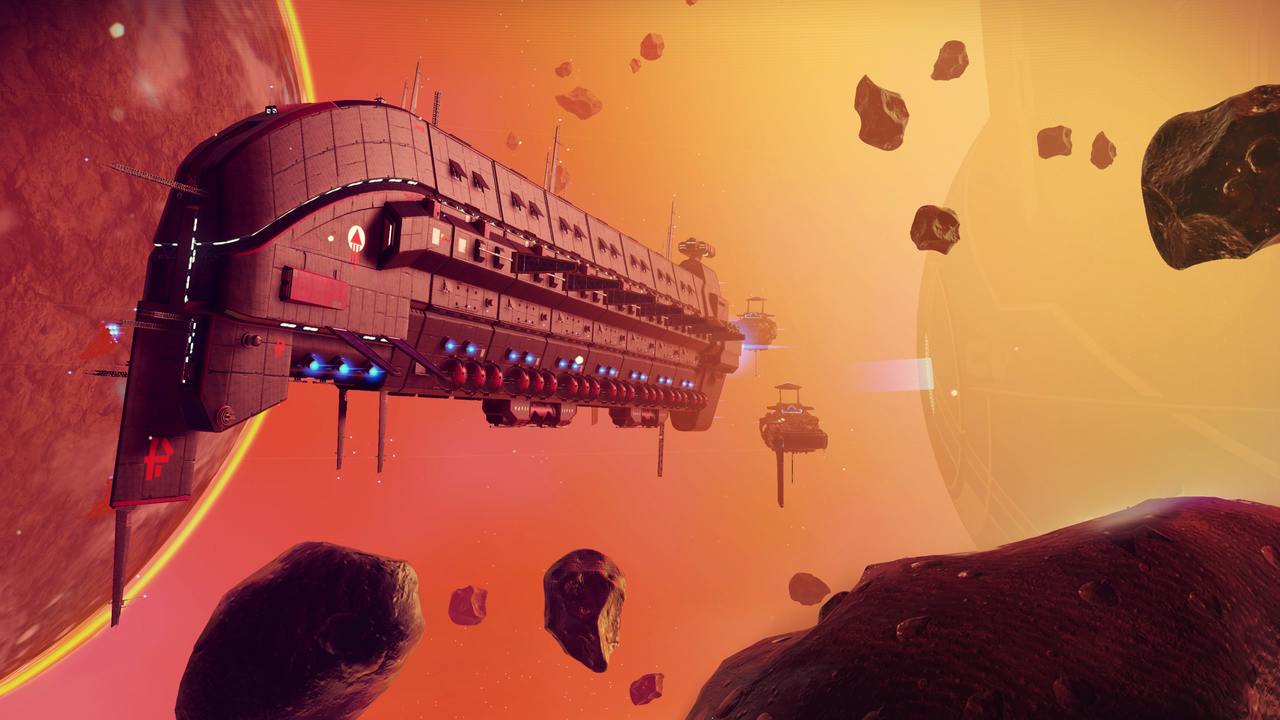
“One day I will feel that No Man’s Sky is finished, but I don’t feel like that at the moment.” he says. “I’m more excited now than ever before as, for me, it feels like a really different game. There’s still loads of stuff we want to add, and I never thought we’d feel that way as a studio, two years on from No Man’s Sky’s release. Hello Games has learnt a lot and has built up so much more experience just in terms of our team and our skill sets; there's so much that we can do now that we’ve found our groove.”
How Hello Games intends to sustain itself through this development is unclear, but the impending Xbox One launch will certainly help. Murray explains how the move to Microsoft’s hardware, after years of being promoted as a PS4 console exclusive, came about. “You always hear about Phil Spencer being a really nice guy in the press, and it turns out he's a really nice guy! He’s always sent me lovely emails in support of the game, and is a big fan, having played it himself, so has often mentioned that we’d be welcome on Xbox.”
“I know the console wars are out there raging somewhere, but we just want as many people to play No Man’s Sky as possible and, for us in particular, releasing on Xbox is this nice opportunity for people to get to play the game fresh, as though it’s coming out for the first time.”
But whether you’re playing it as a total newbie or returning after an extended hiatus, No Man’s Sky is bound to delight and surprise you come July 24, when the Next update finally rolls out. For the studio, this is just the start of another chapter in No Man’s Sky’s incredible journey from very small beginnings. From the outside looking in, though, the story of Murray, Hello Games, and its daring indie sci-fi project is one that continues to get more fascinating and inspiring with every passing day.
I'm GamesRadar's Features Writer, which makes me responsible for gracing the internet with as many of my words as possible, including reviews, previews, interviews, and more. Lucky internet!
